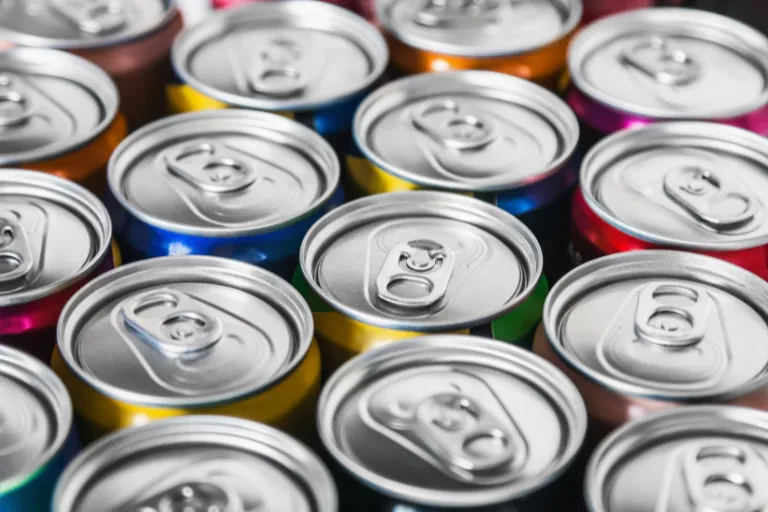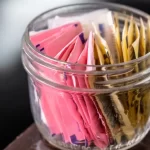Key Points
- Energy drinks typically contain 100–300 mg of caffeine per serving, often combined with sugar, taurine, guarana, B‑vitamins, and other stimulants.
- Regular use may elevate blood pressure, cause rapid heartbeat, interfere with sleep, and contribute to caffeine dependence, especially in individuals who are more sensitive to caffeine.
- U.S. poison centre data show a 24 % increase in youth exposures between 2022 and 2023, with many cases involving rapid heart rate or sleep disruption.
- A 2024 study of 144 sudden cardiac arrest survivors found that about 5 % had recently consumed an energy drink, underscoring potential risks for individuals with underlying heart problems.
- While the FDA and EFSA generally consider up to 400 mg caffeine/day safe for healthy adults, adolescents are advised to stay below 100 mg/day or avoid caffeine entirely.
A Rising Concern: Energy Drink Exposures on the Rise
Data from America’s Poison Centres show a 24 % jump in calls about energy drink exposure among under-20-year-olds between 2022 and 2023. Nearly half of these cases in children under 12 were unintentional, and many involved heart palpitations, agitation, or sleep problems—most cases were mild to moderate, but the trend indicates increasing misuse and easy access.
What Drives the Energy Drink Boom
Global surveys estimate that about 32 % of people consumed an energy drink in one month, and nearly 9 % report daily use. These products are heavily marketed to teens, college students, shift workers, and athletes—groups drawn to their promise of fast alertness. However, many cans contain more than one “serving,” leading people to unknowingly consume higher caffeine and sugar loads.
How Energy Drinks Impact the Body
Cardiovascular Effects: Blood Pressure and Heart Rate Surges
A randomised, placebo‑controlled crossover study showed that one 16‑oz energy drink (≈240 mg caffeine plus taurine and guarana) raised systolic blood pressure by ~6 mm Hg and resting heart rate by ~5 bpm among healthy adults—even at rest.
Case‑series analysis of sudden cardiac arrest survivors found 5 % had recently consumed energy drinks, urging caution for those with known heart rhythm vulnerabilities.
Sleep Disruption & Mood Disturbances
Late‑day caffeine intake is known to delay sleep, reduce sleep quality, and impair next‑day alertness. Especially in adolescents, regular energy drink use has been linked to increased headaches, mood changes, and engagement in risk‑taking behaviour.
Sleep disruption also increases reliance on stimulants the next day, creating a cycle of dependency.
Dependence & Withdrawal Symptoms
Frequent caffeine intake can lead to psychological and physical dependence. Abrupt cessation may trigger withdrawal symptoms such as tiredness, irritability, headaches, and difficulty concentrating.
The Combined Effects of Ingredients
Beyond caffeine, ingredients like taurine, guarana, and B vitamins may interact synergistically, amplifying cardiovascular stress. High sugar content is also associated with weight gain, impaired blood sugar regulation, and dental damage.
The Science Under the Surface
Caffeine blocks adenosine receptors in the brain, stimulating dopamine and noradrenaline release—boosting alertness and mood. Combined with other stimulants, it can activate the sympathetic nervous system, elevating blood pressure, heart rate, and cortisol.\Regulatory bodies like the FDA and EFSA recommend a daily caffeine limit of 400 mg for healthy adults, while adolescents should stay under ~100 mg/day or avoid it altogether.
Who’s Most at Risk?
- Teens and young adults: more prone to sleep disruption, mood swings, and dependence.
- Individuals with known or inherited heart rhythm disorders may be more likely to experience cardiovascular complications even with moderate intake.
- Shift workers, students pulling late nights, athletes: often over-rely on stimulants and risk compounding effects over time.
Evidence‑Based Alternatives for Sustained Energy
| Alternative | Benefit | How to Incorporate |
|---|---|---|
| Matcha or green tea (≤100 mg caffeine) | Gradual caffeine release, antioxidants, minimal sugar crash | Brew mid-morning with lemon or protein |
| Yerba mate or herbal adaptogen teas | Mild stimulant effects, hydrating, steady lift | Opt for unsweetened varieties |
| Improved sleep hygiene | Restorative sleep reduces the need for stimulants | Fixed bedtime, cool/dark room, limit screens |
| Balanced meals & hydration | Stable glucose + fluids support energy levels | Whole grains, lean protein, fruit, water |
| Frequent movement breaks | Raises circulation and alertness naturally | Short walk, stretching, breathing pauses hourly |
Research Snapshot: Matcha vs. Energy Drinks
Emerging randomised studies suggest that matcha — rich in L-theanine and antioxidants — may offer a gentler, more stable boost in focus and calm compared with high-caffeine energy drinks. For instance, matcha has been shown to improve heart-rate variability (a marker of autonomic balance) and subjective sleep satisfaction in controlled settings, and to sustain attention under mild stress better than caffeine alone.
Key Insights and Next Steps for Safer Energy
Energy drinks may offer a quick burst of alertness, but the growing body of research suggests that regular use can come at a cost—especially for heart health, sleep quality, and long‑term energy balance. For most people, a simple first step is replacing just one daily energy drink with green tea, matcha, or a high-protein snack and observing how energy levels change over a week.
Pay attention to warning signs such as rapid heartbeat, jittery or anxious thoughts, mood changes, or disrupted sleep, and if these occur, consider pausing consumption and discussing your intake with a health professional. Parents and educators can play a key role by limiting youth access to these beverages and promoting healthier hydration and snack options. Health professionals can help individuals understand safe caffeine limits, identify hidden caffeine sources like guarana, and encourage label awareness so that individuals can make informed choices.
Your Next Steps
Looking for healthier, sustainable ways to stay energized? Join our free newsletter for weekly science-backed tips, practical alternatives, and routines that boost energy without relying on stimulants.
This blog post aims to be informational and should not replace professional health advice. Always consult with a health professional for personalised advice.
Sources
- Thompson TR, Hays HL, Kistamgari S, Rine NI, Zhu M, Xiang H, et al. Pediatric Exposures Associated with Caffeine Energy Products Reported to United States Poison Centers, 2011–2023. Journal of Medical Toxicology [Internet]. 2025 Jan 31; Available from: https://parents.com/accidental-caffeine-exposure-kids-8786498
- Mandato J, Kola R, Tyson T, Laffin L, Bales R. The Effects of Energy Drinks on the Cardiovascular System: A Systematic Review. Current Cardiology Reports. 2025 Nov 14;27(1).
- European Food Safety Authority. Caffeine [Internet]. European Food Safety Authority. 2015. Available from: https://www.efsa.europa.eu/en/topics/topic/caffeine
- Ellermann C, Hakenes T, Wolfes J, Wegner FK, Willy K, Leitz P, et al. Cardiovascular risk of energy drinks: Caffeine and taurine facilitate ventricular arrhythmias in a sensitive whole‐heart model. Journal of Cardiovascular Electrophysiology. 2022 Mar 27;33(6).
- EFSA. Safety of caffeine [Internet]. European Food Safety Authority. 2015. Available from: https://www.efsa.europa.eu/en/efsajournal/pub/4102
- Costantino A, Maiese A, Lazzari J, Casula C, Turillazzi E, Frati P, et al. The Dark Side of Energy Drinks: A Comprehensive Review of Their Impact on the Human Body. Nutrients [Internet]. 2023 Sep 9;15(18):3922. Available from: https://www.mdpi.com/2072-6643/15/18/3922
- Martinez KA, Bains S, Neves R, Giudicessi JR, Bos JM, Ackerman MJ. Sudden cardiac arrest occurring in temporal proximity to consumption of energy drinks. Heart rhythm. 2024 Jul 1;21(7):1083–8.
- Svatikova A, Covassin N, Somers KR, Somers KV, Soucek F, Kara T, et al. A Randomized Trial of Cardiovascular Responses to Energy Drink Consumption in Healthy Adults. JAMA. 2015 Nov 17;314(19):2079.
- Aonso-Diego G, Krotter A, García-Pérez Á. Prevalence of energy drink consumption world-wide: A systematic review and meta-analysis. Addiction (Abingdon, England) [Internet]. 2023 Nov 15;119(3). Available from: https://pubmed.ncbi.nlm.nih.gov/37967848/#:~:text=Results%3A%20The%20life%2Dtime%20ED
- Baba Y, Takihara T, Okamura N. Matcha Does Not Affect Electroencephalography during Sleep but May Enhance Mental Well-Being: A Randomized Placebo-Controlled Clinical Trial. Nutrients [Internet]. 2024 Aug 31 [cited 2024 Sep 22];16(17):2907–7. Available from: https://www.mdpi.com/2072-6643/16/17/2907




Helpful reminder that sleep and hydration are the real ‘energy drinks.’ I’m working on that instead of quick fixes